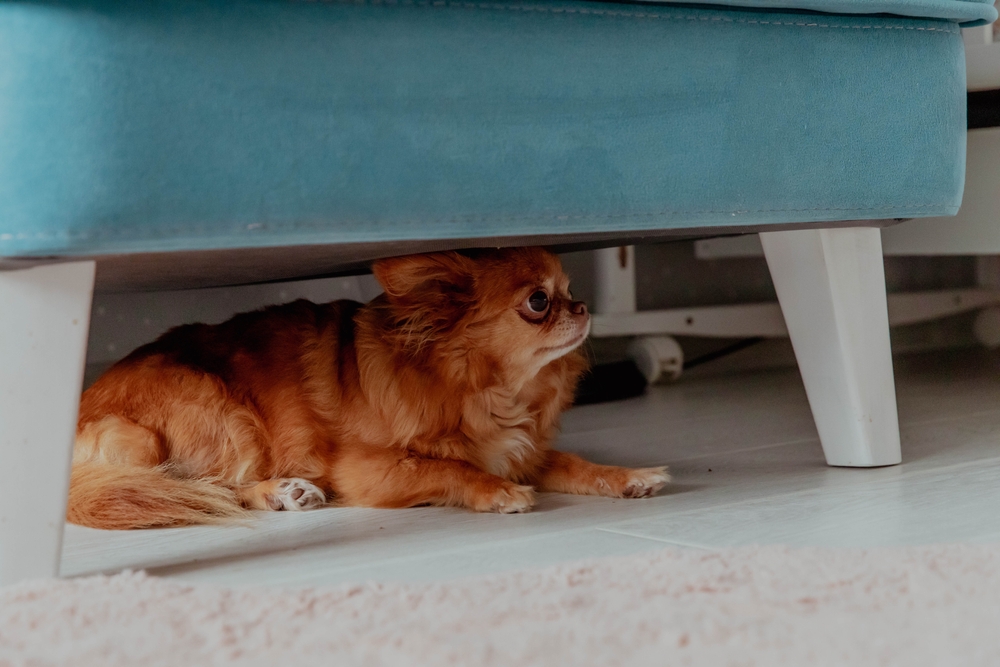The role of every dog owner is to do everything it takes to keep their puppy happy and healthy. So, it’s understandable that many owners panic when their dog displays unusual behavior. When your dog suddenly stops wanting food as much or stops eating altogether, it may cause you some stress.
If you are interested in the reasons why your dog might stop eating, stick with us for some useful information.

The 9 Possible Reasons Your Dog Is Not Eating
1. Your Dog Doesn’t Like the Food
We all want to give our dogs the best, but sometimes, dogs can become spoiled and picky when it comes to their food. So, if they stop eating suddenly, this just might be a sign they don’t like the food you gave them.
You should check the expiration date and see if the food is still usable. If it isn’t usable, you shouldn’t give it to your dog because it can potentially cause health problems.
This can also happen when you introduce a new type of food to your dog; if they don’t like the smell or the taste, they may refuse to eat it.


2. Overfeeding
If your dog is not hungry, they won’t eat. If your dog’s body condition score is on the heavier side, you may be offering them too much food every day. These dogs will often eat tastier food if offered to them, but it’s important not to do this as it will create unhealthy eating habits. Being overweight can increase the risk of health problems like joint disease and even some cancers. If you’re not sure how much your dog should eat, check the feeding guide on your dog food packaging and talk to your veterinarian.
3. Eating at a Particular Time of Day
As we all know, dogs are intelligent animals, and they can quickly form habits. In this case, they can get used to being fed in a particular part of the day and refuse to eat during the other periods. For example, if your dog likes to eat at night, they may refuse food in the morning. While most dogs will chow down whenever they get the chance, this may be the reason your dog’s not eating.


4. Stress
Like humans, many life changes can affect your dog and their appetite. For instance, moving can be very stressful for your dog, resulting in your dog not eating. It is common for the dog to refuse to eat when their owner is away from home as well.
5. Your Dog Feels Threatened
Introducing new animals can also cause your dog to stop eating because they might feel threatened by the new animal or prefer to be alone. Either way, introduce the new pet slowly, and they will learn to coexist over time. Also, it would help if you feed them in separate rooms because one can be intimidated by another’s presence and won’t eat—they will simply guard the food instead.


6. Age
Age can also be a significant factor in why your dog isn’t eating or is eating less. Naturally, young bodies that are still developing need more nutrients from food to develop properly. So, when you get a new puppy, you are shocked at how much food can fit in their little stomach. On the other hand, what happens a lot with senior dogs is that they start to eat less at a certain age in response to lower calorie requirements.
7. Medication
A significant factor to consider in why your dog stopped eating is that many medications can affect your dog’s appetite. All medications have side effects, and some side effects mean additional treatment is needed. The lack of appetite could also mean your dog’s original illness getting worse. If you’re concerned about any side effects of medication, call your veterinarian for recommendations on what to do.
Here are some illnesses that can result in a loss of appetite in dogs:
- Infections and fevers
- Gastrointestinal problems
- Liver problems
- Kidney problems
- Pancreatitis
When the liver or kidneys are diseased, toxins can accumulate in the body, leading to nausea in dogs. Many of the mentioned issues cause pain, nausea, or lethargy, all of which can reduce a dog’s appetite. Pancreatitis, an inflammatory condition of the pancreas, can also cause a loss of appetite due to its intense pain.




How to Help Your Dog
Depending on the underlying cause, there may be a simple solution to help your dog regain their appetite. Eating less and not eating at all are two distinct situations, so if your dog hasn’t eaten anything in 24 hours, it’s important to take the issue seriously.
First and foremost, look for other signs that your dog may be unwell, such as vomiting, retching, diarrhea, lethargy, increased or decreased thirst, urinating more frequently, bad breath, and pawing at the mouth. If you notice any other symptoms or if your dog doesn’t start eating normally soon, contact your veterinarian.
If your dog is refusing to eat because they dislike the taste of the new food you introduced, consider switching back to their previous food. When transitioning to a new diet, do so gradually to prevent gastrointestinal upset. You can also try mixing the new food with the old one or softening it with water to make it more palatable and easier for your dog to chew.
If your dog is stressed due to significant changes at home, try to alleviate their stress by spending more time with them and minimizing sources of stress as much as possible. Engaging in playtime can be a great way to address these issues and strengthen your bond with your dog.


Conclusion
Although this situation can be stressful for any dog owner, it’s important to remain calm and look for any other changes in your dog that may address the issue—dogs may stop eating due to stress or pickiness. However, there are cases where underlying health problems can lead to a loss of appetite.
Regardless, we hope this information has helped you understand the reasons behind this issue. If you still have concerns, don’t hesitate to reach out to your veterinarian for a thorough examination.
Featured Image Credit: N_T, Shutterstock
following sentence:
“The cat sat lazily in the sun, enjoying the warmth on its fur.”
The cat lounged in the sunlight, relishing the cozy feel on its fur. following sentence:
The quick brown fox jumped over the lazy dog.
The fast brown fox leaped over the sluggish dog.

